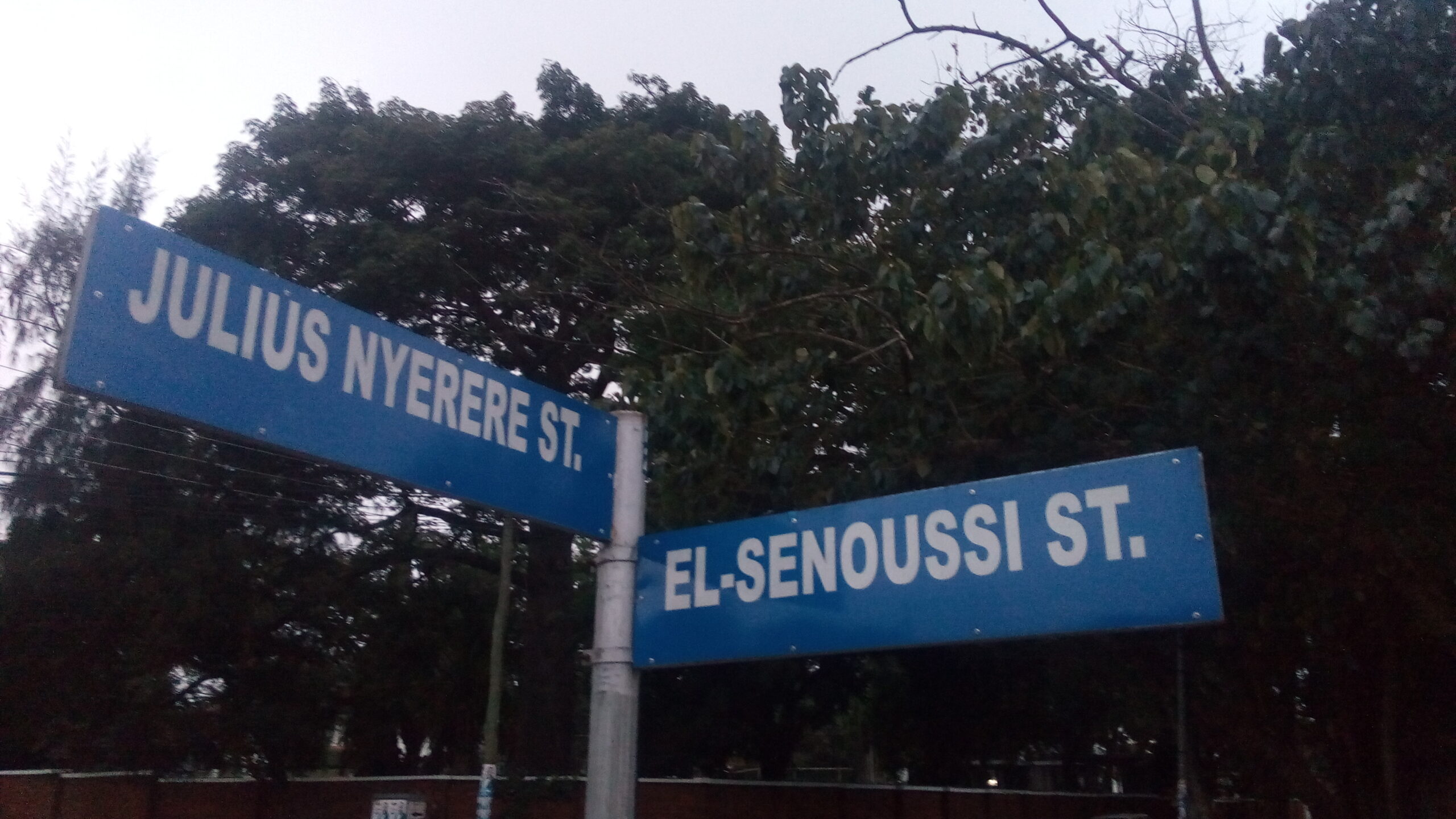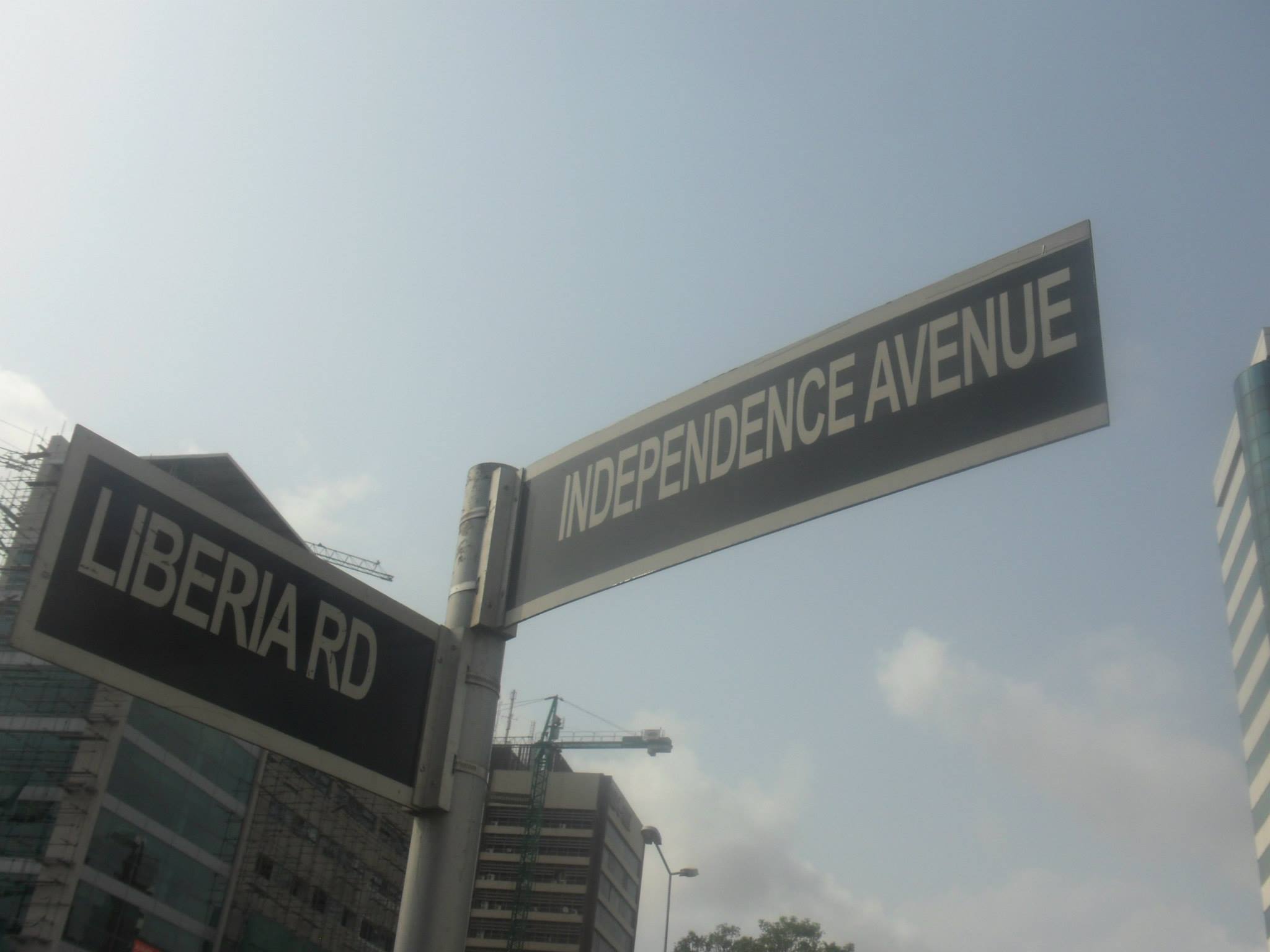“Ghana’s streets are getting names and signs”
October 11 Finding directions has been no easy matter in Ghana, writes Kwasi Gyamfi Asiedu, 20, a Correspondent from Ghana, but that is changing as standard street signs are adopted. The new signs open the door to vital services.
Finding directions has been no easy matter in Ghana, writes Kwasi Gyamfi Asiedu, 20, a Correspondent from Ghana, but that is changing as standard street signs are adopted. The new signs open the door to vital services.
Those who have been out of Ghana for some time will notice something fundamentally different about the country upon return. It’s not the new high rise buildings or the expansive shopping malls, but how you get from one place to another.
That’s because for a very long time mango trees, roadside food vendors and kiosks served as landmarks in the absence of an address system. Many roads and alleys simply did not have names, and as such residents used basic things as references when giving directions.
A typical example is my own neighbourhood – Pillar Two, north of Accra, Ghana’s capital. My family was one the early inhabitants here and much of the place was bush but for two concrete pillars that stood out. So the new residents called one part of the neighbourhood Pillar One and the other part Pillar Two. Although the former did not stick for long, the latter has remained ever since, even though that concrete pillar is no longer there.
East of Accra is another neighbourhood called Yomo Specs, which translates literally as old woman spectacles. The legend is that an old lady who wore glasses used to sit outside always and so when new people moved in, they used her as the reference when directing people to their new houses.
When getting directions to a place, this was how it was likely to go: “turn right, walk straight for about five minutes and turn left and then come down the road until you see a big mango tree. There is a red house around the area stand there and I will come and get you.”
The absence of road signs made it extremely difficult when you needed to go to an office or simply visit a friend. What if on that day, the old lady was feeling cold so was indoors, or that house has been repainted with a different colour?
 Some have attributed the difficultly of small businesses in accessing credit from banks to the lack of an address system. A bank will simply not give out a loan to someone when it does not know where he or she lives.
Some have attributed the difficultly of small businesses in accessing credit from banks to the lack of an address system. A bank will simply not give out a loan to someone when it does not know where he or she lives.
In a country where the government does not know where its citizens live, conducting censuses and tailoring development programmes to neighbourhoods was a herculean task. The police, fire and ambulance services always lamented about how this problem affected the proper execution of their duties especially when dealing with emergencies.
So the government gave the various local assemblies a deadline by which they should have named the streets and provided signs, with funding from the World Bank. Although this deadline has passed and some streets still do not have road signs, significant work has been done.
In many parts of Accra for example, signposts have been erected making it very easy find your way around the city. To avoid confusion, many of the streets still bear the old names, except that this time they have been formalised.
The streets in the downtown area of Accra also showcase Ghana’s pan-Africanist credentials by paying tribute to many of Africa’s great legends and independence heroes and heroines. They include Tanzania’s Julius Nyerere and Egypt’s Gamel Abdul Nasser.
With the address system looking like it is being sorted out finally, essential services that seemed like a privilege in the past would soon follow. They include effective emergence response, online shopping and deliveries.
Ghanaians can’t wait any longer.
Reach me on Twitter: @journokwasi
Photo credits: courtesy of Kwasi Gyamfi Asiedu
………………………………………………………………………………………………………………
About me: I am Kwasi, a journalism student from Ghana. I hope to use my skills to tell positive stories about marginalised communities in the world, with the belief that these stories would force action that improves the lives of the people.
………………………………………………………………………………………………………………
Opinions expressed in this article are those of the author and do not necessarily represent the views of the Commonwealth Youth Programme. Articles are published in a spirit of dialogue, respect and understanding. If you disagree, why not submit a response?
To learn more about becoming a Commonwealth Correspondent please visit: http://www.yourcommonwealth.org/submit-articles/
………………………………………………………………………………………………………………




